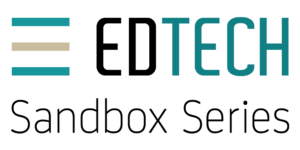*Note: This session has passed. Please view the recording and resources below.
About the Session

This session will explore the design and use of CITE GPT, a custom AI chatbot created as a project in the University of British Columbia Master of Educational Technology ETEC 511 class, to support students and educators with academic writing, citation formatting, and ethical information use in a reflexive way. The aim of this session is to demystify the design process, showing our successes and failures, which may lead to participants being better informed or trying this skill themselves.
Developed using OpenAI’s custom GPT framework and grounded in the principles of reflexivity, digital literacy, and educational usability, CITE GPT serves as a model for how AI can be thoughtfully embedded into academic practice.
Participants will be led through the coding process of creating a chatbot, engage in hands-on experimentation with the chatbot, be encouraged to make a chatbot of their own, and explore how the system-level prompt and knowledge base can shape user experience, all while reflecting on how AI can support, not shortcut, learning. This is done by emphasizing critical thinking, ethical engagement with technology, and student agency.
Together, we’ll reflect on how to use AI tools responsibly in our teaching and help students develop agency, not dependency. By the end, participants will leave with a concrete sense of how to evaluate, adapt, or build their own tools to support academic success.

Recording and Resources
- Transcript – EdTech Sandbox Series: Build Your Own Teaching Bot – My Story of Creating CITE GPT as a Teaching Tool (PDF)
- Transcript – EdTech Sandbox Series: Build Your Own Teaching Bot – My Story of Creating CITE GPT as a Teaching Tool (Word)
- Slides – EdTech Sandbox Series: Build Your Own Teaching Bot – My Story of Creating CITE GPT as a Teaching Tool (PDF)
- View recording on media.bccampus.ca
Event Recap
Blogpost – Build Your Own Teaching Bot: From Theory to Classroom Practice
About the Facilitator
Amanda Robbins is an educator, instructional designer, and MEd candidate at the University of British Columbia, specializing in educational technology. With over 20 years’ experience teaching English for academic purposes at the college level at both Langara College and Simon Fraser University, she brings a deep understanding of pedagogy, digital learning, and accessibility. Her recent work explores the ethical integration of AI in the classroom. Amanda has led workshops for educators on AI and assessment for B.C. TEAL and University of Victoria ProD days, and recently organized workshops for a digital literacy teaching exchange in China.
About the Series
Discover the BCcampus EdTech Sandbox Series!
In these 90-minute workshops, expert leaders will introduce and demonstrate cutting-edge, open, and free, or low-cost educational technology tools aligned with the B.C. Post-Secondary Digital Literacy Framework. Participants will experiment with tools, work with fellow educators to review features of the tools, gain insights into teaching activities, and discover ways to integrate these tools into courses.
Focus Areas
- The AI Sandbox: a space dedicated to experimenting with, and reviewing, artificial intelligence tools and applications in educational settings.
- Other Learning Technologies: a space to explore, experiment, and review emerging learning technologies beyond AI, highlighting their potential impacts and practical applications.
EdTech Sandbox Series Sessions
-
- September 10, 2025 – Choose Your Own Adventure! Dynamic Branching Scenarios and Game Maps With H5P and AI Tools
- October 8, 2025 – The Intelligent Notebook: Become a Knowledge Expert With NotebookLM
- October 17, 2025 – [Special EdTech Sandbox] Remote Proctoring Through an Ethical Lens: the Case Against Surveillance
- November 26, 2025 – Claude vs. ChatGPT: Choosing the Right AI for the Job
- January 21, 2025 – Build Your Own Teaching Bot: My Story of Creating CITE GPT as a Teaching Tool
- March 3, 2026 – Literature Searching with Artificial Intelligence
